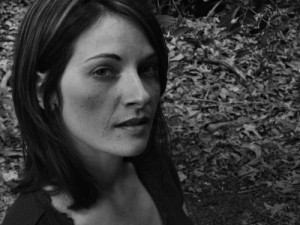Writing Your First Line: The Shamanic Induction of Storytelling
Have you considered the spiritual implications of creating a powerful first sentence of your book?
Yes, it’s the hook that dazzles readers so that they engage and read the rest of your book. It sets the theme of your work, instantly alluring or provoking readers. But what’s happening at a deeper level in those opening words that compels readers to commit to stepping into this new world?
In a shamanic context, the first sentence acts as the opening to a ritual, an induction of sorts.
The job of that opening is to create a separation from everyday life, which some refer to as ‘ordinary reality’. Making that separation is the creation of sacred space, opening a circle, or calling in the directions. It is the pooling of the highest elements to lay the foundation for the work to come. This break from the mundane is not only intentional, it’s deliberate. Everyone needs to step out of routine now and then. Everyone at some point requires a return to ascetic release, and the powerful setup of your story–regardless of theme–tells your reader that is exactly what lies ahead. Consider these classic first-liners and how they affect your sense of time and place:
- “This is the forest primeval.” Henry Wadsworth Longfellow, Evangeline
- “People ask, ‘How did you get in there?’ What they really want to know is if they are likely to end up in there as well.” Susanna Kaysen, Girl, Interrupted
- “In the beginning God created the heaven and the earth.” Genesis 1:1, King James Version
- “Mrs. Dalloway said she would buy the flowers herself.” Virginia Woolf, Mrs. Dalloway
- “You better not never tell nobody but God.” – Alice Walker, The Color Purple
With these or the simple utterance, “Once upon a time,” a new cosmology is created.

S. Kelley Harrell was involved with the creation of The Spirit of a Woman anthology, which includes her story, "Telling the Bees".
You don’t know where the opening is going, but you want to go there. Creating the willingness in your reader to trust that you will take them on a staggering, potent adventure means suspension on several levels has occurred. Within ritual as within storytelling, you have created and opened the space. You have created the segué away from waking into some other reality, into the realm of imagination.
Having set stellar space for your Other world, the ritual is the crux of the writing. In Jung’s Hero’s journey, it is the test or climax. In shamanic work it is the alchemy for which the space was created. It’s the place where the elements of your impeccably crafted sacred hook combine with your action.
The artful weaving of these elements sustains the sense of timelessness, suspension of place, and releases resistance to seeing self through another perspective, body type, color, gender, or set of circumstances. This narrative delivers an enthralling story, weaving in wisdom the reader can then bring back to mundane reality. In that spellbinding, soul-centered narrative, a story is born.
—
Follow Kelley Harrell on Twitter @SKelleyH, Facebook and her websites: Soul Intent Arts, Kelley Harrell, and her blog, Intentional Insights.
Gift of the Dreamtime may be purchased online or in your local bookstore. If your local shop doesn’t have it on the shelf, they can order it for you. Signed copies are available directly from the author.
Category: On Writing


























Kelley,
You’re probably not looking at comments anymore, but thanks for the journey–it was beautiful, enlightening, and best of all, inspired me quite a bit *and* helped me value what I’m already doing a bit better.
I’d “stumble upon” this and “digg” it, but have burned enough social media brain cells for one day. (I found out it wasn’t a simple “click.”) Leave it to say that I feel as though I’ve just sipped a soothing cup of tea, had a massage, gotten acupuncture (love those needles–seriously), and soaked in a steamy bath all in one. It made me feel *good.*
Thank you, Janis! It’s great to meet you =)
This is such an interesting way of looking at first lines. First lines are possibly the most important in the book, and thinking of them as a crossover between worlds is a great way to embody what they must do. Great first lines have a hint of the struggle that is going on; they must say more than ‘this is the place’ or ‘this is the character’. They must say ‘this is the struggle that is going on in the character’s heart’. Lovely piece.
I like the way you phrase that, Roz. An invitation to look within.
I hope you are well!
I totally adore this observation, and can definitely identify with it. It really hits home with my new release of YA Spiritual Fiction, Divine Traditions: Cameo secrets. Topics similar to what you discuss in this article are explored in my book, and the characters do make blatant reference to entering “non-ordinary reality.”
I really appreciate this new insight, and am thrilled to have this new way at looking at my own work, as well as others’. I always knew that a good book could transport the reader to another world, but had never realized just how spiritual that statement is. It will absolutely get me considering my opening lines with much more purpose from now on. Thank you for that.
Thanks, Megan! Good luck with your new book!!
This is remarkable and wonderful. I’ve been journeying, before, during and after each book (that is, shamanic journeying) and dreaming with and for them, since I started writing. The Boudica: Dreaming series is based in pre-Roman Britain, but is my experience of the dreaming, of shamanic practice, rendered into the past, at the time of the Roman invasion. I couldn’t write without it – thank you for this moving and intelligent observation.
Manda
Thanks for your thoughts, Manda. Indeed, the skill of journeying is a powerful tool in writing.
Be well!
Thanks for your thoughts, Manda. Indeed, the skill of journeying is a powerful tool in writing.
Be well!
Thanks for your comment, Tania! Oooo those are great first lines! I love the idea of bringing your tarot mind into the mix. That fusion of collective and individual symbolism is powerful!
Dream well!
Kelley,
came your way via She Writes–your title pulled me in–gave me a seed to keep. I like the concept of the shamanic power of the first line. Very much enjoyed thinking about how I might bring my tarot reader self to bear on my writer self. I loved that idea that we are in fact creating sacred space and the first line sets the tone for the terrain to be revealed.
One first line I’ve had in my head since undergrad days (quite a good number of years ago), revitalized by teaching the book last semester comes from Their Eyes Were Watching God by Zora Neale Hurston: “Ships at a distance have every man’s wish on board…” which sets up the second paragraph to focus on this great line about women: “Now, women forget all those things they don’t want to remember, and remember everything they don’t want to forget.”
And Marion Zimmer Bradley’s The Mists of Avalon: Morgaine Speaks…”In my time I have been called many things: sister, lover, priestess, wise-woman, queen.” This opening line places the reader immediately into the realm of questioning identities, entering the story eager to witness, judge for oneself, these possible selves.
Thanks again for the post.